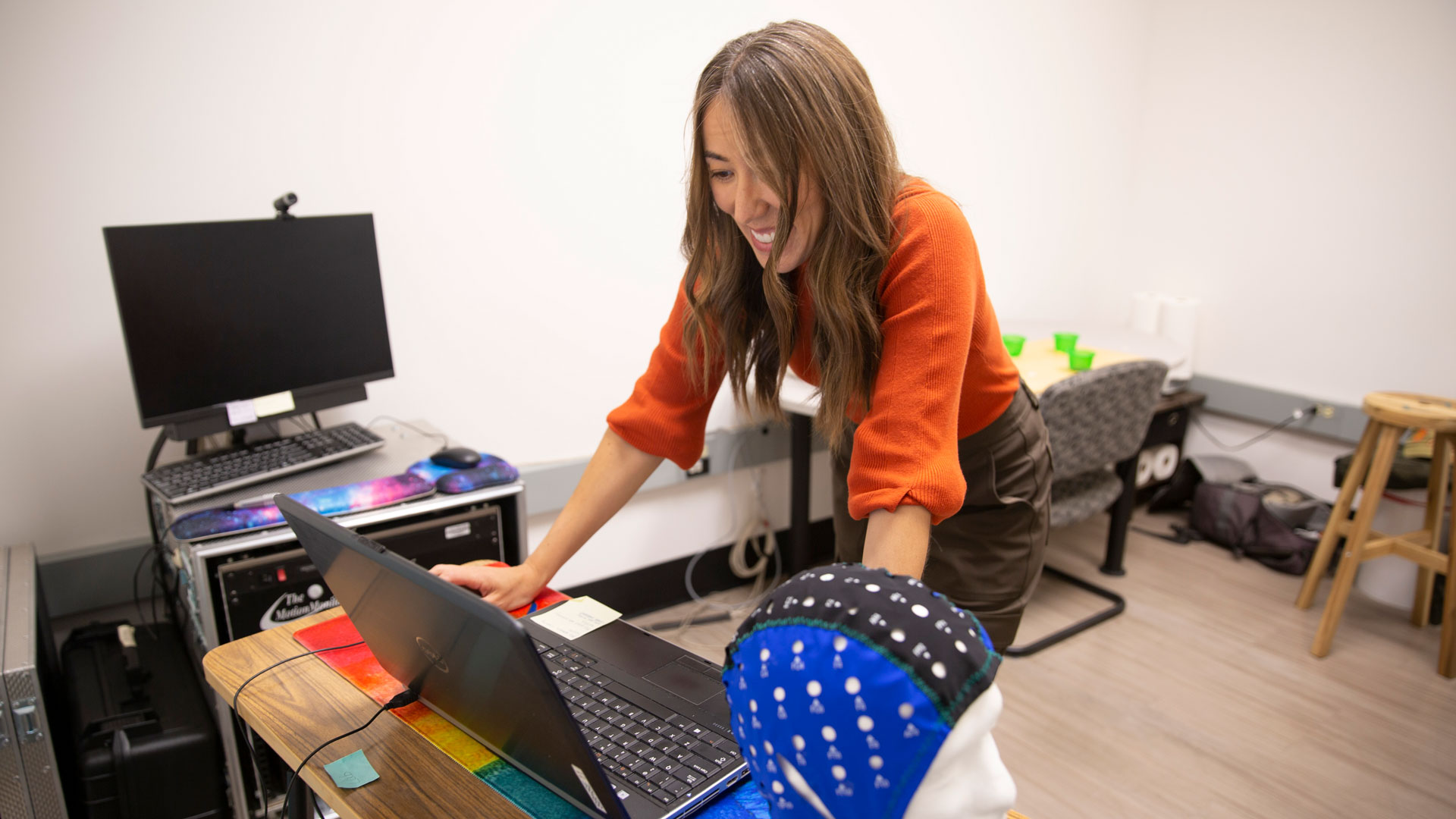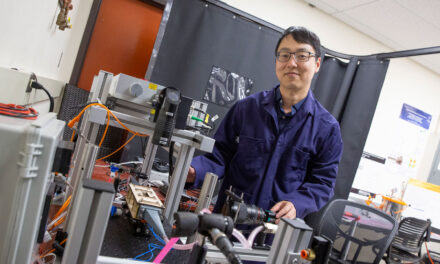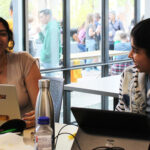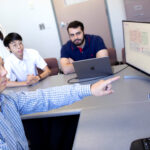
Unlocking the secrets of aging
Sydney Schaefer to advance Alzheimer’s disease research through Fulbright Scholar program

Sydney Schaefer, assistant professor of biomedical engineering in the School of Biological and Health Systems Engineering, part of the Ira A. Fulton Schools of Engineering at Arizona State University, has been named a Fulbright Scholar for the 2023–24 academic year.
The Fulbright U.S. Scholar Program sends American scholars abroad to teach and/or conduct research for up to a year.
“It is an incredible honor to be selected by the Fulbright Commission, first in the United States and then in Sweden,” Schaefer says. “The designation also helps remind me that our research is important and has potential to have a global impact.”
Schaefer will be working at the Institute of Gerontology, which is part of the Aging Research Network in the School of Health and Welfare at Jönköping University, a private institution located in Jönköping, Sweden, which is about a 200-mile drive from Stockholm.
Heather Clark, director of the School of Biological and Health Systems Engineering, part of the Fulton Schools, says, “Being selected as a Fulbright Scholar is a tremendous distinction and demonstrates the impact of Professor Schaefer’s work both nationally and internationally. By teaming with the researchers and unique capabilities available at Jönköping University, her research in the area of Alzheimer’s disease and dementia will accelerate.”
Research for early Alzheimer’s detection
While in Sweden, Schaefer’s research will focus on the same goals as her work at ASU to develop new methods for early detection of Alzheimer’s disease. The work involves developing a novel physical motor function assessment that can be deployed either in the home or in primary medical care as a first line of defense after earlier disease screening.
“The idea of using motor measures to predict and track dementia is innovative, since it has only recently been discovered that early Alzheimer’s disease pathology affects brain regions responsible for movement,” Schaefer says.
Schaefer chose Sweden as her destination because the country is a world leader in aging services, infrastructure and research. Sweden has a long tradition of documenting health outcomes through government-administered registries, which collect individual-based clinical data to examine and improve health care delivery.
“There are currently over 100 Swedish quality registries, about 60% of which cover more than 80% of their target population throughout Sweden,” Schaefer says. “I have identified three longitudinal databases supported by the Swedish Research Council that have collected over 110 motor measures, along with cognitive, daily functioning and other health data from nearly 5,000 older adults in Sweden.”
These databases, the Swedish Adoption/Twin Study of Aging, OCTO-Twin and GENDER, have many more motor measures than large, publicly available databases in other countries. For example, the Alzheimer’s Disease Neuroimaging Initiative, or ADNI, study within the U.S. is among the largest publicly available datasets for aging and dementia, with nearly 2,000 participants, but there are fewer than 10 upper body motor measures in ADNI.
“This Fulbright award allows me to have access to all three databases, as well as expertise from methodologists for analyzing how these different motor measures predict functional and cognitive changes over time,” Schaefer explains. “This project perfectly matches my research trajectory with the unique resources at Jönköping University to connect people and nations in the fight against Alzheimer’s disease and related dementias.”
Swedish cultural immersion
Schaefer has previously taken groups of students to Sweden as part of a study abroad course, with the objective of exposing students to the innovative biomedical infrastructure and health care delivery in the country.
“It has been through this experience that I have been able to develop collaborations with researchers at Jönköping University, which led to this project,” Schaefer says. “Since my first visit to Sweden, I have wanted to return and live with my family for a period of time to immerse myself in Swedish culture.”
She will soon have that opportunity as she experiences daily life in a different country, especially a smaller, less tourist-centric city like Jönköping.
“One Swedish tradition is fika, a coffee mid-morning coffee break in the workplace. Co-workers meet and socialize for a few minutes each day before heading back to work,” Schaefer says. “This fosters a sense of community, collegiality and collaboration.”
Schaefer hopes to build long-lasting, sustainable professional and personal relationships with other researchers and local Swedes.
“I am looking forward to learning and integrating aspects of Swedish culture into my life,” she explains. “My daughter will also be in kindergarten there, and she too will be able to experience daily life in another country.”
Schaefer prides herself on being a good mentor to her students and trainees and she hopes to use her experience in Sweden to help them as well.
“I’m hoping that I can foster collaborations that will benefit my trainees, and that some of my trainees can even come and visit to build their own research careers and increase their own visibility among the Institute of Gerontology as well,” Schaefer says.
“I hope to also develop new and different ways of mentoring, identify new opportunities for funding my trainees,” she says, “and perhaps encourage and help them to acquire their own Fulbright funding in the future.”
The U.S. Department of State has also announced that ASU is a Fulbright Program Top Producing Institution for the 2022–23 academic year.



































